The summit took place in Dubai, United Arab Emirates (UAE). It was supposed to last from November 30 to December 12, 2023, but was exceeded by one day.
COP28 was the 28th annual United Nations (UN) climate meeting, where governments discuss how to limit and prepare for future climate change.
The summit follows a year of extreme weather events in which many climate records were broken.
World leaders have reached a new agreement to tackle climate change at a major United Nations meeting in Dubai.
The UAE planned to use its role as host of UN climate talks as an opportunity to strike oil and gas deals.
The UN body responsible for the COP28 summit said media presenters, including the BBC, must act without bias or self-interest.
The UAE team did not deny using COP28 meetings for trade negotiations and said “private meetings are private.”
The United Arab Emirates is one of the top 10 oil producing countries in the world. He appointed Sultan Al – Jaber, general director of the state oil company, as president of COP28.
Oil, like gas and coal, is a fossil fuel. They are the main causes of climate change because they release planet-warming greenhouse gases, such as carbon dioxide, when burned for energy.
Mr Al-Jaber’s oil company is expected to rapidly increase production this decade.
Documents leaked by the BBC also suggest that the UAE was planning to use its role as host of COP28 to secure new oil and gas deals.
Sultan Al – Jaber has previously claimed that he is uniquely placed to spur the oil and gas industry into action.
He said that as chairman of renewable energy company Masdar, he oversaw the development of clean technologies such as wind and solar power.
The text calls for this to be done “in a fair, orderly and equitable manner.” This is seen as an important recognition that richer countries should move away from coal, oil and gas more quickly, however the deal does not require countries to take action and there is no timetable. is specified.
These summits are the most important meetings in the world to discuss how to combat climate change.
The hope is that COP28 will help limit long-term global temperature rise to 1.5°C, which the UN climate science body says is crucial to avoiding the worst impacts of the climate change. But this will require drastic reductions in greenhouse gas emissions, it says – a 43% reduction by 2030 compared to 2019 levels.
For more than two dozen countries, the documents also contain talking points authored by Adnoc and Masdar:
- Brazil’s environment minister was asked to help “guarantee the alignment and approval” of Adnoc’s bid for Latin America’s largest oil and gas processing company, Braskem. . Earlier this month, Adnoc made a $2.1bn (£1.7bn) bid to buy a key stake.
- Adnoc was to tell Germany: “We are ready to continue our LNG supplies.”
- Adnoc suggested that the oil-producing countries Saudi Arabia and Venezuela be told “that there is no conflict between the sustainable development of a country’s natural resources and its commitment to climate change”.
Attempting to conclude trade deals during the COP process appears to be a serious violation of the standards of conduct expected of a COP President.
These standards are set by the United Nations body responsible for climate negotiations, the United Nations Framework Convention on Climate Change (UNFCCC).
“They must also ensure that their personal opinions and beliefs do not compromise or appear to compromise their role and functions as an officer of the UNFCCC,” the statement continued.
Manuel Pulgar – Vidal, president of the COP20 summit in Peru in 2014, fears that a collapse in confidence will mean no progress in the fight against climate change in Dubai.
“The president of the COP is the leader of the world and he is trying to build consensus on behalf of the planet,” he declared Manuel Pugal – Vidal.
“If a COP president tries to attract special interest, (including) commercial interest, it could mean the failure of the COP.”
Several of the proposed projects mentioned in the briefing materials appear to represent new oil and gas developments. The International Energy Agency, a global watchdog, said that to keep rising temperatures at the 1.5C target, no new oil and gas fields should be developed.
At a press conference last month, COP28 Director-General Majid Al-Suwaidi said the UAE climate summit team was “completely independent” from Adnoc and Masdar.
COP28 was “very clear on our independence” during discussions with the UNFCCC, he added.
In a statement, the COP28 team said: “The fact that Dr Sultan Al – Jaber holds a number of positions alongside his role as COP28 President-designate is public knowledge and we have been transparent from the start. departure.
“Dr Sultan Al – Jaber is particularly focused on COP business and achieving ambitious and transformative climate outcomes at COP28,” the statement said, adding that it would be a “distraction” to suggest that the work he does he undertook was not “targeted”. on meaningful climate action.”
Almost every country in the world has agreed to “move away from fossil fuels” – the main driver of climate change
This commitment is included in the first “global stocktake” on how countries can accelerate action to achieve the goals of the historic Paris Agreement.
This is the first time that such an agreement has been reached in 28 years of international climate negotiations.
Despite a major step forward in launching a fund to pay for ‘loss and damage’ from climate change, developing countries have been disappointed by the lack of new financial commitments to transition away from fossil fuels and adapt to the impacts climatic.
According to Reuters, Greta Thunberg called Al Jaber’s nomination “completely ridiculous”, while former US Vice President Al Gore said fossil fuel interests had taken over COP.
Some, including US special climate envoy John Kerry, called Al Jaber’s criticism “unfair” and said it was important that oil-producing countries were included in the COP process.
On Twitter, former UN climate chief Christiana Figueres said the COP28 presidency had been “caught red-handed” and “will be under public scrutiny like never before”. A member of the COP28 advisory board resigned over the allegations, Reuters reported.
The UAE team for COP28 initially refused to deny BBC News’ allegations and said “private meetings are private.” After the article was published, Al Jaber released a statement saying the allegations were “untrue, false, incorrect and inaccurate,” Bloomberg reported.
As time runs out to stop fossil fuel pollution from causing irreversible damage, discussions among world leaders, negotiators, climate advocates and industry representatives have shifted to how the world should adapt to more deadly heat waves, more violent storms and catastrophic sea level rise.
Despite the widespread consequences of the climate crisis, the annual negotiations have been controversial. The path to consensus on solutions has been fraught with pitfalls and has highlighted the divisions between rich countries – which emit the majority of the pollution responsible for global warming – and poor countries, which have the contributed less.
Some of the biggest concerns that will take center stage in Dubai relate to the continuation of COP27 in Egypt: the finalization of a “loss and damage” fund and the discussion on how to reduce fossil fuels which contribute to global warming. the planet.
A major debate between parties has been whether to “phase out” or “phase down” fossil fuels. At COP27, a number of countries, including China and Saudi Arabia, blocked a key proposal to phase out all fossil fuels – including oil and gas – not just coal.
This year, there will also be a focus on the so-called Loss and Damage Fund, which countries included in last year’s agreement. The fund would move money from richer countries, responsible for the vast majority of the climate crisis, to poor countries, where the consequences have been hit hardest.
The aim is for the fund to be operational by 2024. With time running out, a special committee met in Abu Dhabi in early November and recommended that the World Bank host the fund and be its administrator temporarily for four years.
Several countries have pledged a total of $700 million, which is a far cry from the $400 billion in damage caused each year by climate change. In September, a group of developing countries called for at least $100 billion to be committed to the fund.
The UAE pledged $100 million, which was matched by Germany. Italy and France have pledged more than $108 million, while the United Kingdom has pledged $50.8 million. The United States and China, despite being the world’s largest emitters, have given only $17.5 million to the United States and $10 million to China.
In addition to collecting pledges, participants at this year’s summit discussed how to meaningfully manage the fund, while its board of directors is expected to meet in January to finalize the framework and begin operations, according to Rishikesh Ram Bhandary, deputy director of the Global Economic Governance Initiative at Boston University.
The EU is the world’s largest public climate financier
In Dubai, European Council President Charles Michel stressed that the EU was honoring its commitment to reaching the $100 billion target set by the Paris Agreement.
The EU and its member states have announced a contribution of €220 million to the loss and damage fund to help the poorest and most vulnerable countries.
The President of the European Council, Charles Michel also called for reform of international financial institutions to make them fairer and more inclusive.
At a side event organized by the International Drought Resilience Alliance, the President of the European Council also stressed the need to catalyze investments that build drought resilience at local, national and international levels.
The main points on the agenda of COP28 are:
- a global assessment;
- the mitigation work program;
- the global adaptation goal;
clim - te finance, including financial arrangements for loss and damage.
In its conclusions, the European Council highlighted the opportunities that ambitious climate action offers to the planet, the global economy and people, as well as the importance of ensuring a just transition towards sustainable economies and societies, climate resilient and climate neutral, which leave no one behind.
The European Council stressed that global ambition must be significantly increased to keep the 1.5°C target within reach, and called for:
- collective strengthening of nationally determined contributions (NDCs);
- a global phase-out of fossil fuels and a peak in their consumption this decade
- a global electricity system that is entirely or mostly decarbonized by the 2030s;
- a phasing out of fossil fuel subsidies that do not solve energy poverty or only ensure the transition as quickly as possible;
- global action to triple installed renewable energy capacity and double the rate of energy efficiency improvement by 2030;
- all parties must redouble efforts to integrate adaptation and resilience to climate change into existing policies and programs in all relevant sectors;
- all countries must step up their efforts to mobilize finance to support climate action.
The EU is also committed to working with all parties to:
- continue to promote the implementation of the enhanced transparency framework;
- foster an inclusive discussion on the future of the UNFCCC;
- advance the implementation of the Glasgow Work Program on Action for Climate Empowerment;
- address the gender dimension;
- discuss the implementation of climate action in agriculture and food security.
This is a key part of the Paris “ratchet mechanism”, under which countries must steadily scale up their climate action over time, until their collective goals can be achieved.
The process made COP28 the most important since COP21 in Paris, according to Liu Zhenmin, who is expected to become China’s climate envoy following the retirement of veteran diplomat Xie Zhenhua. Liu said at a December 5 side event at the China Pavilion attended by Carbon Brief:
“COP28 is the most important COP since the Paris Agreement, as the global stocktake will set the direction for future work on climate action. »
Similarly, U.S. climate envoy John Kerry said in a Nov. 29 press briefing that the review was “a once-in-a-lifetime opportunity… to rally the world to significantly scale up our collective efforts to achieve the goals of the Paris Agreement. He said it must be “outspoken, strong, visionary and comprehensive.”
The final agreement on the balance sheet, including text on “abandoning fossil fuels”, came “after 12 hours of intense shuttle diplomacy”, said German climate envoy Jennifer Morgan.
It places the call to “contribute to subsequent global efforts” in the context of “the need for deep, rapid and sustainable reductions in greenhouse gas emissions in line with 1.5°C”, and recognizes “the different circumstances national”.
However, beyond the vague phrase “accelerating action during this critical decade”, the language does not include any short-term goals, pointing only to net zero emissions by 2050.
After the text was published, some climate scientists argued that the scope of “fossil fuels in energy systems” meant that their use in industry or as chemical feedstocks was not included. Others noted that, regardless, energy systems covered more than 80% of oil and gas consumption.
The figure below illustrates the evolution of the language on fossil fuels, through each version of the stocktaking text at COP28. Note how, between the December 11 versions and the final December 13 version, language referring to “both the consumption and production of fossil fuels” was lost.
The multi-year inventory process, specified in the 2015 Paris Agreement, is designed to encourage each country to make ever stronger voluntary commitments to reduce emissions. The first set of commitments was finalized in 2020; the next cycle will be submitted by 2025, before COP30 which will be held in Brazil.
Alongside these goals, there is relentless growth in global energy demand, which is why boosting energy efficiency and renewable energy is crucial. Otherwise, continued growth in fossil fuel development threatens to eat up these gains.
Under COP rules, the 2024 meeting must take place in the United Nations’ Eastern European region, and Russia has refused to accept a member of the European Union as a host.
The United Arab Emirates – as host of COP28 were not happy that another major fossil fuel producer, Azerbaijan, was chosen as host of COP29 next year.
Copyright©2023 IMPACT EUROPEAN. All rights reserved.
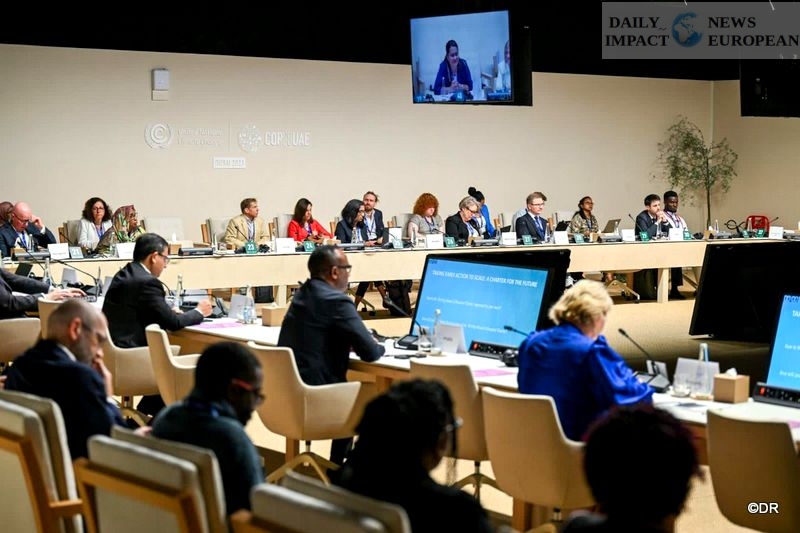
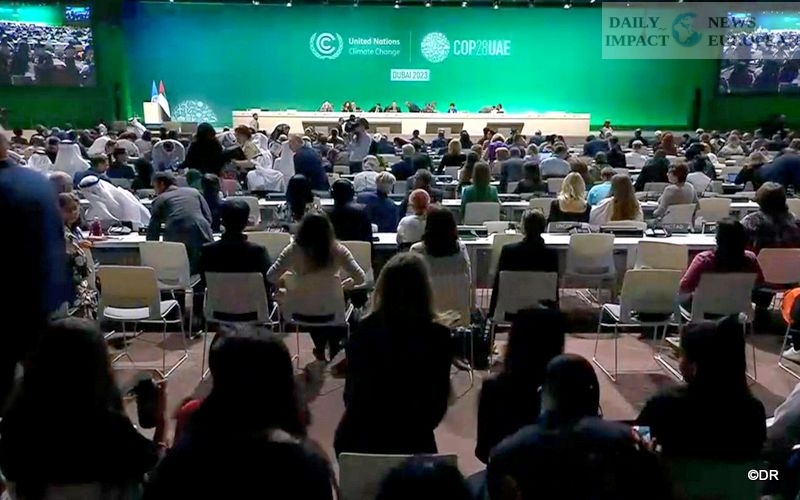
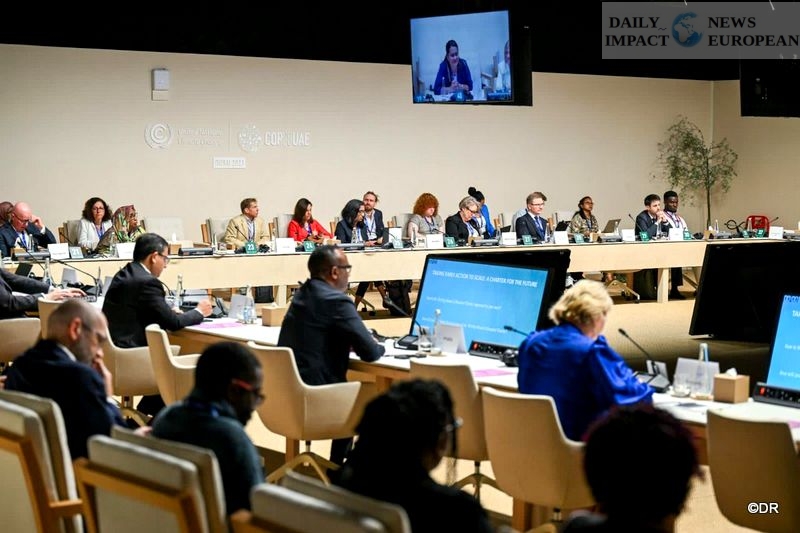
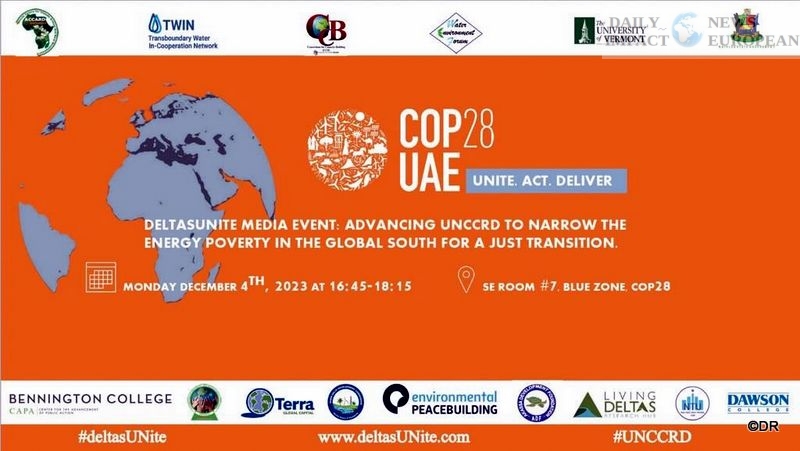
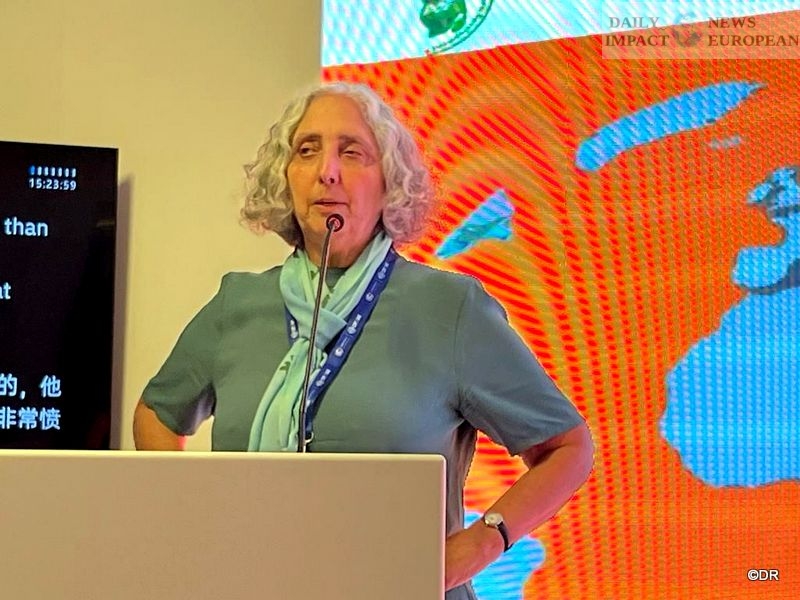
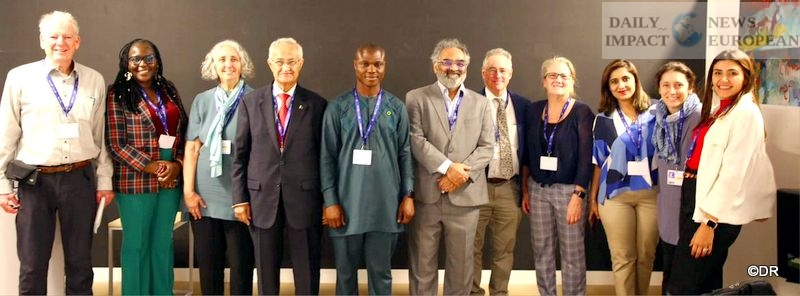
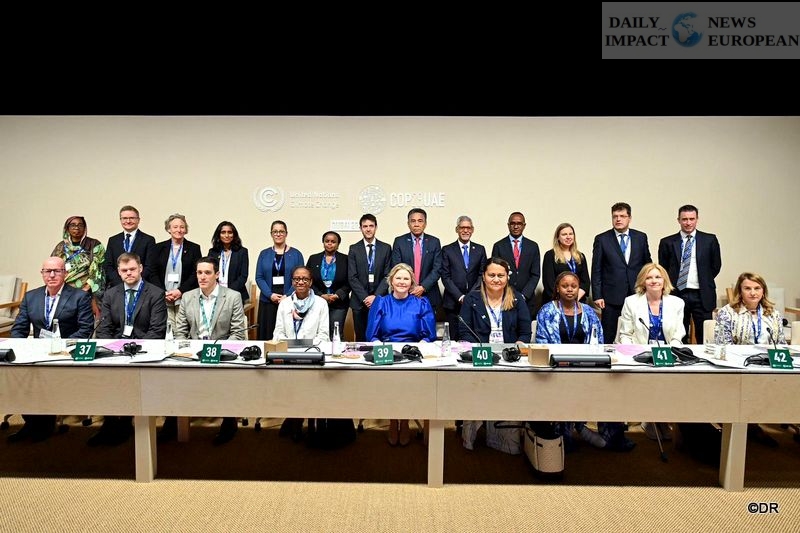
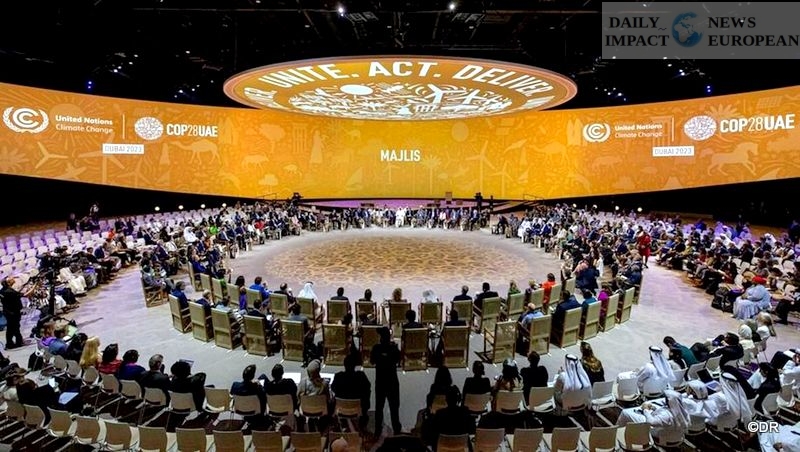
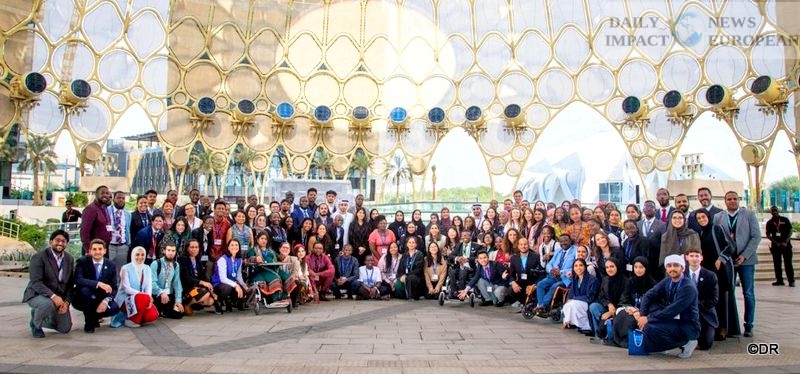
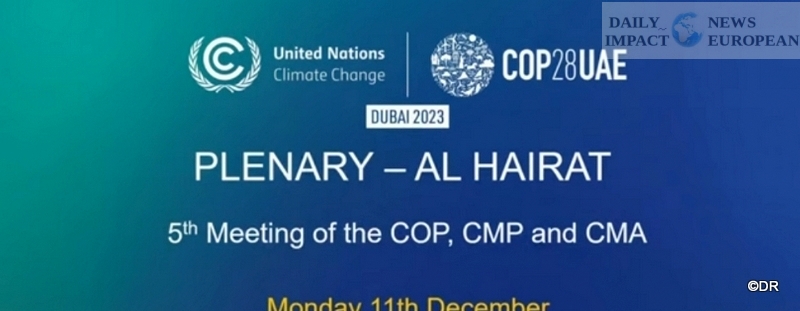
More Stories
Meeting between French and Israeli counterparts Emmanuel Macron and Isaac Herzog at the Élysée
“Dansong” at the Avignon Off Festival 2024
Olympic Flame at the Jardin du Musée Mac Val